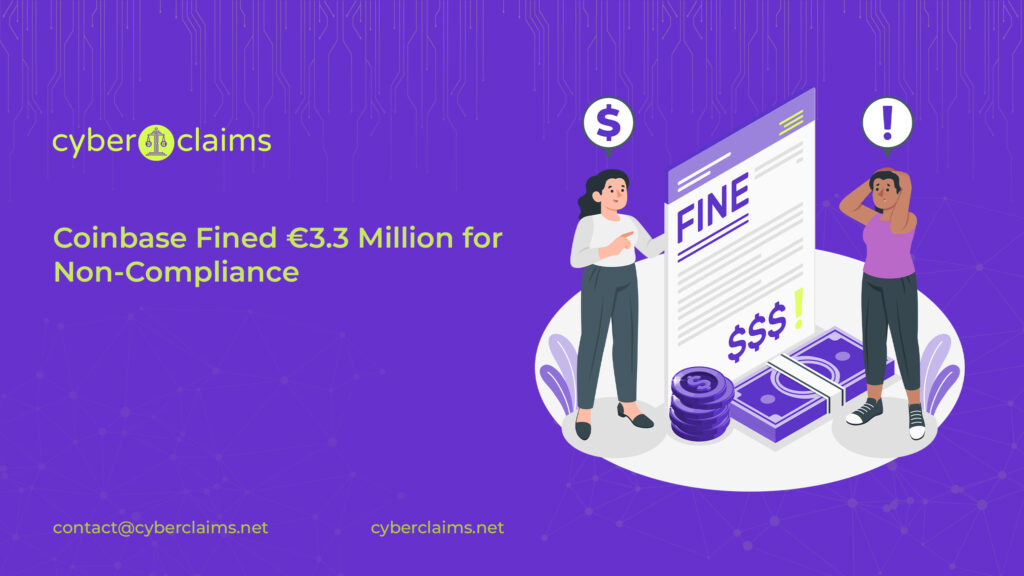Coinbase Europe Limited (Coinbase) has been fined €3.3 million by De Nederlandsche Bank (DNB) for providing crypto services in the Netherlands without registering with DNB. The fine was imposed because Coinbase violated the Dutch Anti-Money Laundering and Anti-Terrorist Financing Act (Wet ter voorkoming van witwassen en financieren van terrorisme – Wwft).
The Wwft requires companies that want to provide crypto services in the Netherlands to register with DNB. Coinbase failed to obtain the necessary registration until September 22, 2022, which is why DNB imposed the fine. Non-compliance with the Wwft is punishable by a category 3 fine. The base amount for this fine category is €2 million, with a minimum amount of €0 and a maximum amount of €4 million.
DNB’s General Fine Calculation Policy (in Dutch) was used to determine the amount of the administrative fine, taking into account the severity and degree of culpability of Coinbase’s non-compliance. The fine was increased because Coinbase is one of the largest global crypto service providers, has a significant number of customers in the Netherlands, and did not pay any supervisory fees to DNB or incur other costs related to DNB’s regular supervision activities.
Coinbase’s non-compliance persisted from November 15, 2020, until at least August 24, 2022, which DNB considers a severe non-compliance. DNB also considered that Coinbase did not report unusual transactions to the Financial Intelligence Unit-Netherlands during the period of non-compliance and until September 22, 2022. Coinbase had always intended to register with DNB, which reduced the fine by 5%.
The Wwft aims to counter money laundering of criminal proceeds and terrorist financing, which is of high importance to ensure effective countering of different forms of serious crime. By not complying with the Wwft, Coinbase contravened the objectives of this law. During the period of non-compliance, a large number of unusual transactions may have gone unnoticed by the investigative authorities.
Coinbase has until March 2, 2023, to object to the fine. This incident highlights the importance of complying with anti-money laundering and anti-terrorist financing laws, especially in the crypto industry. Governments around the world are starting to crack down on crypto service providers that do not comply with these laws, and this trend is likely to continue.
Crypto service providers must take their compliance obligations seriously and prioritize them to avoid financial and reputational damage. Companies must ensure that they have the necessary registrations and licenses to operate in different jurisdictions and that they comply with applicable laws and regulations. Failure to do so can result in significant fines, regulatory scrutiny, and reputational damage.
The crypto industry is rapidly evolving, and companies that operate in this space must adapt to changing regulations and compliance requirements. This incident serves as a reminder that non-compliance with anti-money laundering and anti-terrorist financing laws can have severe consequences.
It is important to emphasize that as part of the Dutch Anti-Money Laundering and Anti-Terrorist Financing Act (Wwft), there are other laws and regulations in the Netherlands that apply to cryptocurrency-related activities. For instance, the Dutch Central Bank (DNB) and the Dutch Authority for the Financial Markets (AFM) have issued several warnings to investors about the risks associated with investing in cryptocurrencies.
In addition, the Dutch Tax Authority considers cryptocurrencies as assets, and as such, they are subject to taxation. In general, profits from trading or selling cryptocurrencies are taxed as capital gains, while businesses that accept cryptocurrencies as payment for their goods or services are required to pay taxes on their earnings.
Moreover, the Dutch government is actively working on regulating the cryptocurrency industry in the country. In September 2021, a draft bill was presented to the Dutch parliament proposing the introduction of a licensing regime for cryptocurrency service providers. The bill aims to provide a clear regulatory framework for cryptocurrency-related activities and to prevent their misuse for criminal purposes such as money laundering and terrorist financing.
Overall, the Netherlands is taking a proactive approach to regulating the cryptocurrency industry, in line with its efforts to combat financial crimes and protect consumers. As the industry continues to evolve, it is likely that further laws and regulations will be introduced to ensure that cryptocurrencies are used in a safe and responsible manner.

